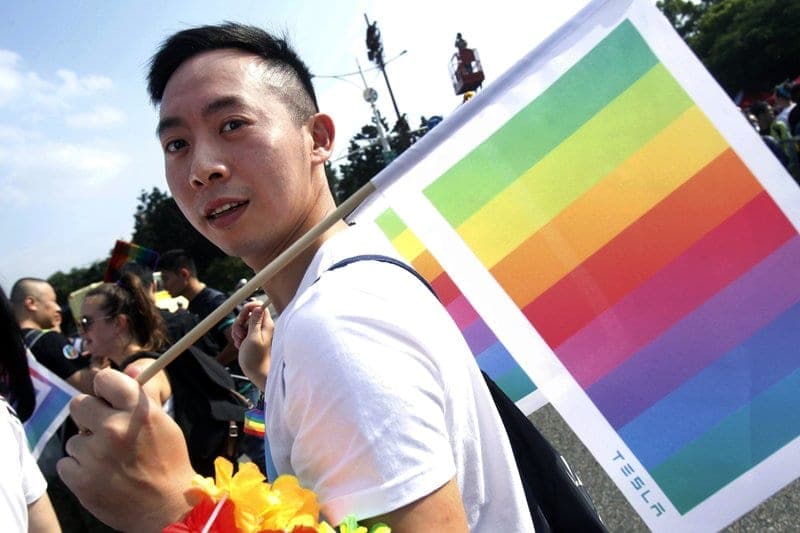LEICESTER, United Kingdom – Warning that sex or gender “cannot be reduced to a mere construct of society that is fluid and changeable,” the Catholic Church in Scotland is urging the government to reconsider changes to the country’s gender identity laws.
Currently, Scotland is under the regime established by the UK’s Gender Recognition Act 2004, which allows a person to legally change their gender provided they have been diagnosed with gender dysphoria, have lived as their “new” gender for at least two years, and intend to continue to do so for the rest of their life.
A Gender Recognition Panel will issue a certificate allowing them to amend their birth certificate to reflect the new gender.
The Scottish government has argued that this process is “onerous” and should be reformed, and has proposed removing the current medical requirements and the requirement to appeal to a Gender Recognition Panel, as well as changing the time required to live in one’s “new” gender from two years to three months. It is also suggesting that the age limit for legally changing gender be reduced from 18 to 16.
The Scottish government has called for a public consultation on the matter, which closes on March 17.
A briefing paper issued by the Catholic Parliamentary Office of the Bishops’ Conference of Scotland said the proposed changes “risk creating medical, social and legal complications which will be difficult to resolve and damaging to those involved,” adding that there “are particular risks for children and women.”
A spokesperson for the Catholic Church in Scotland told Crux the Church “is deeply concerned that, by making it easier to change gender and by de-medicalising gender dysphoria, it will become more difficult for people to receive support in the form of contact with health professionals for what the medical profession regards as a genuine, troubling medical condition associated with an elevated level of comorbid mental illness including anxiety disorders and suicidality.”
He added that redefining something as fundamental as male and female “is not within the purview of government or parliamentarians.”
A chief concern is allowing young people under the age of 18 years to legally change gender, which “puts them on a dangerous path towards irreversible medical experimentation.”
“The long-term effects of using puberty blockers is largely unknown and politicians should not proceed with radical legal reforms in this area, especially when rates of persistence in gender dysphoria for children is low, with the vast majority of them reconciling with their biological sex beyond adolescence,” the spokesperson said.
The briefing paper pointed out that numerous studies have shown that most young people will not persist in gender dysphoria and will reconcile with their biological sex beyond adolescence.
“Those under 18 require special protection, especially in such an important formative phase of their young lives. They should not be encouraged to make permanent legal declarations on their gender; declarations which could lead to irreversible surgery or non-surgical interventions, the long-terms effects of which remain unclear,” the document says.
The Catholic spokesperson also told Crux that the Church is concerned that reducing sex or gender “to a feeling without any sound scientific and biological basis” also creates a risk to the safety and wellbeing of women.
“Men who self-identify as women can gain access to what have traditionally been regarded as safe spaces for women, putting them at risk of harm and abuse,” he said.
The briefing paper noted the case of Karen White, a biological male and convicted rapist who, following his incarceration, self-identified as female and applied to be moved to a women’s prison, where he sexually assaulted other inmates.
“Rhona Hotchkiss, a former prison governor, stated recently that, prior to this policy coming into force, there were only two prisoners who identified as transgender—this rose to 22 male to female transgender prisoners in custody in 2018,” the paper states.
“Ms. Hotchkiss stated that none had self-identified as female prior to their conviction. This represents around 7 percent of the numbers of women in Scottish prisons; significantly higher than the percentage of transgender people found in the wider population, which is estimated at around 0.02 percent. This means that the incidence rate of men identifying as women is 350 times higher amongst the prison population than it is in the general population,” it continues.
Another issue flagged by the Catholic Parliamentary Office is the risk the proposed changes to the law pose to free speech and freedom of thought, conscience and religion.
The spokesperson said these “cannot be overstated.”
“These fundamental rights must be upheld for those who do not subscribe to the idea that gender is fluid or can be wholly divorced from biological sex,” he said.
“Erosion of these rights risks the creation of a totalitarian society where free speech and even free thinking on such matters are oppressively policed by those in authority, rolling back hard won and widely cherished democratic values.”
Follow Charles Collins on Twitter: @CharlesinRome
Crux is dedicated to smart, wired and independent reporting on the Vatican and worldwide Catholic Church. That kind of reporting doesn’t come cheap, and we need your support. You can help Crux by giving a small amount monthly, or with a onetime gift. Please remember, Crux is a for-profit organization, so contributions are not tax-deductible.

















